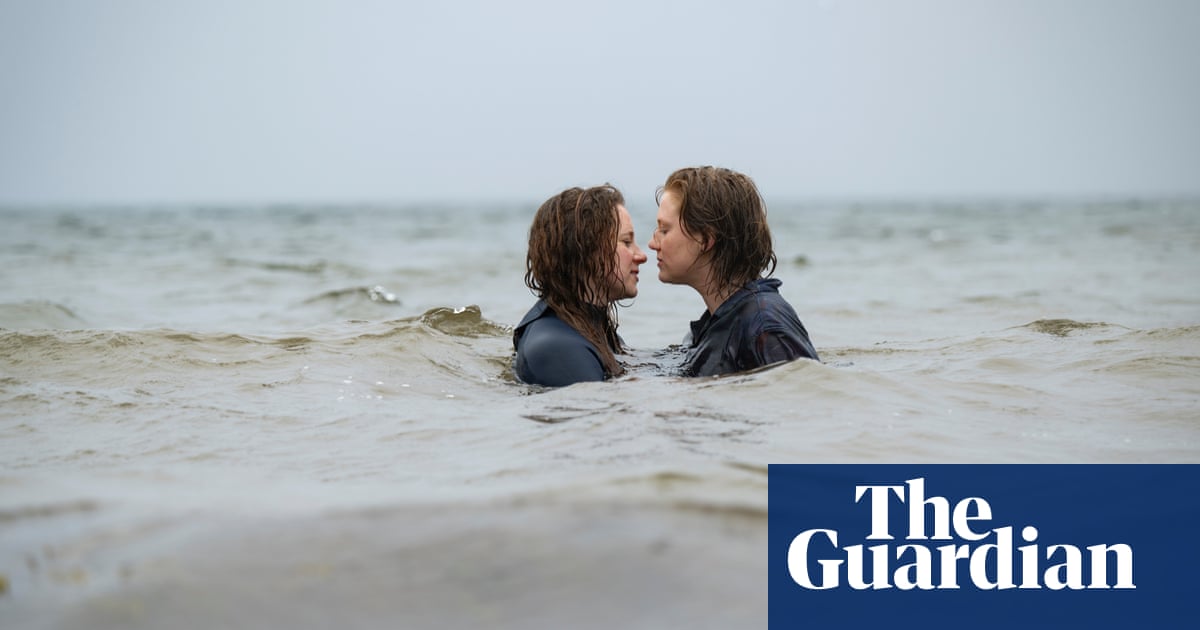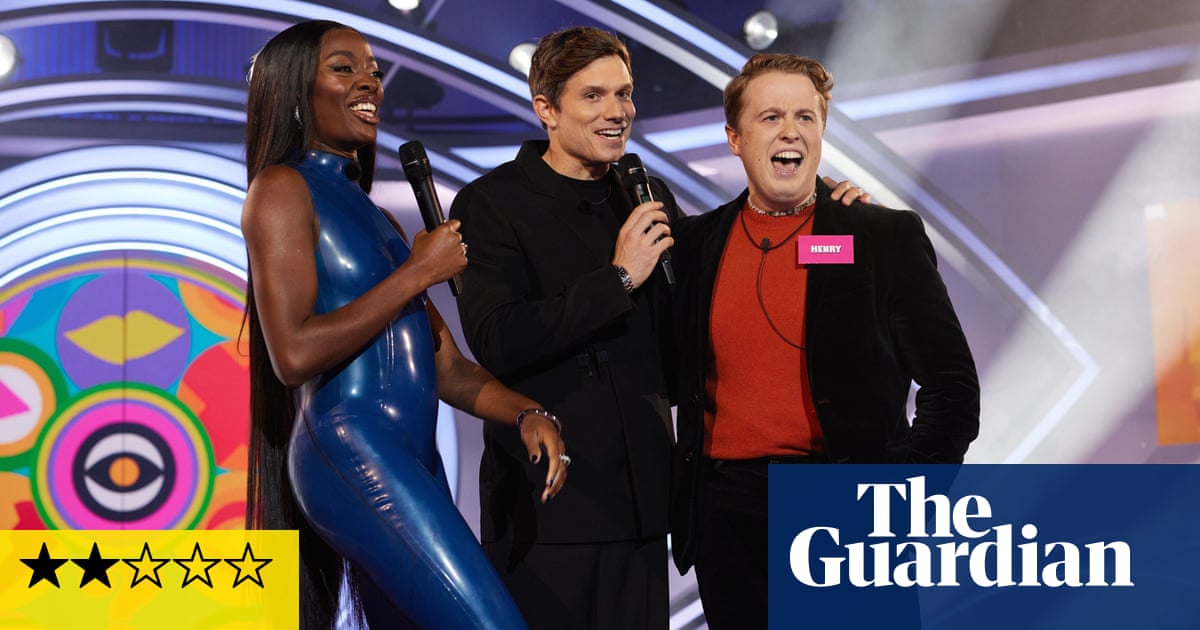
As with my experience of so many modern cultural touchstones, I first came to 24 via a Simpsons parody. Being only seven years old in 2001, when the 24-episode “real time” thriller first aired, my knowledge of Kiefer Sutherland’s exhausting counter-terror mission to stop the assassination of a presidential hopeful came from a 2007 Simpsons episode starring Lisa and Bart in a split-screen chase to hold off the detonation of a powerful stink bomb at Springfield Elementary.
Watching the real thing for the first time, it is clear that this is a product of the early 00s, from the clumsy racial othering of Dennis Haysbert’s black senator David Palmer and the low-rise jeans everyone is wearing to the clunky technology and nu-metal soundtrack. Yet there is also a timeless sense to the series as it progresses – namely in the relentless charge of Sutherland’s gruff-voiced Jack Bauer and in the snappy split-screen editing, artfully tying together disparate narrative strands.
With each hour episode of the show representing an hour in the life of Bauer and his storyline, one thing 24 has is lots of time to play with. Perhaps my millennial brain has been rotted by the near-instant gratification of the miniseries, but I struggle to stick with the meandering first few episodes. However, once I’m invested – somewhere between the fourth and fifth hour – I’m gripped. I’ve binged 12 hours over the past few days and amid the tectonic thump of the ticking clock, there have been kidnappings, more concussions than I can count and not once has Bauer stopped to go to the toilet. It seems I’ll be in to 24 for the long haul – or at least another 24 hours. Ammar Kalia
Downton Abbey
Until last week, I’d never watched a single second of Downton Abbey. That was no accident. I presumed the show was the platonic ideal of my most loathed TV subgenre: dull and mawkish period dramas, saturated in nostalgia for a rigid class hierarchy I consider deeply disturbing, rather than reassuringly organised. So, imagine my surprise when I discovered that the first episode was actually quite good. Yes, there was a colossal amount of hand-wringing over the finer points of inheritance law, but that was woven into a clever, engaging portrait of a society on the brink of two radical shifts: the success of women’s suffrage and the rise of the middle classes. Rather than being schmaltzy and simplified, the upstairs/downstairs dynamic was portrayed with an ambivalence that highlighted its brutality and symbiotic nature.
And then, in episode three, something ludicrous happened. Then another. And then another. The whirlwind plot increasingly beggared belief; there were CBeebies-levels of expository dialogue; the melodrama was unintentionally hilarious. The rest of it began to disintegrate. Initially, I thought the show was demonstrating the ways human kindness shone through the cracks in this strict social hierarchy, but soon the celebration of decency started to seem like a celebration of the system itself. What had at first appeared to be level-headed appraisal now seemed like nauseatingly sentimental propaganda. I finished series one feeling newly depressed about the implications of Downton’s huge international success. But at least there was one upside: I was right all along. Rachel Aroesti
The West Wing
The West Wing is more daunting than most TV classics. This is no snackable six-parter, or even a 13-episode sprint, but a terrifying seven seasons and 156 episodes’ worth of supposedly brilliant television. Truth be told, I have never been able to face starting it; there is already too much to watch and not enough time. And, as the political climate has become increasingly toxic and ever more shameless, it seemed almost perverse to go back to a time when politics was still boring enough for people to not know what Potus stood for. I assumed that The West Wing would have aged about as well as a yoghurt left in the sun on a hot day.
I watched the first three episodes and there is no doubt that it has dated – has any show employed soaring strings so often, and so bombastically, since? – but i is incredible at fixing you in the dramatic centre of even mundane-seeming conundrums. Aaron Sorkin’s dialogue is not sparse – at the most recent Golden Globes, Tina Fey joked that he “can have seven men talking, and it feels like 100 men talking,” – but I admired the breathless zip of it. It was more sincere and less arch than I have come to expect television to be, for which I blame either Veep or current affairs. As for the politics, I was quickly nostalgic for a time when the Christian right fought for condoms to be removed from high schools, rather than pushing wild insurrectionist conspiracy theories. The West Wing is still daunting – 153 episodes to go! – but I did not expect to find it so soothing. Rebecca Nicholson
Girls
I’m slightly appalled with myself to learn that Girls is now nine years old. Nine. I have avoided something for almost a decade, purely because the discourse around it made me want to die.
To watch Girls in 2012 was to have to hack through what felt like an insurmountable tangle of baggage. Call a show Girls and you’re indicating that this is a show about all girls, just as I’d expect a show called 40-Year-Old Men Who Are Becoming Less and Less Successful at Disguising Their Baldness to be specifically about people like me. And as such, everyone had a take on it. Girls had a take on Girls, because they were girls. Women had a take on Girls, because they used to be girls. Men had a take on Girls, because men always have to have a take on everything. It was truly, truly exhausting, so I ducked out. Until now.
Here’s my theory. If I’d watched Girls when it first came out, I would have hated it. My enjoyment would have been coloured by all the hype and noise around it, almost all of which was overbaked. But now I’ve watched season one, a decade late and without any context, and guess what? It’s OK!
Girls isn’t, as I thought, designed to be the self-important Rosetta Stone that unlocked the universal mystery of the millennial woman. It’s just a fun little show about some self-involved idiots, like dozens of other shows before it. The dialogue is slightly tortured, but that’s probably the point. The characters are all deeply annoying, but that’s probably the point, too. It’s much lighter than I expected, and pleasantly breezy. Girls is pretty good. Who knew? Stuart Heritage
Parks and Recreation
I can’t help it – I’m preternaturally drawn to TV that makes me alternately shout “aaaargh” and whisper “oh, my God” to myself. If there’s a docuseries about a cult coaxing people away from their homes, or alleged abuse (see: Allen v Farrow), then I’ve probably seen it. I love comedy, but even within that my tastes lean towards the macabre and morose.
It is a treat, then, to dive in to Parks and Recreation – a show I’ve only briefly watched before – and let its gentle satire of local government wash over me. It offers me a rare TV moment when I’m not either a) simultaneously on Harold Shipman’s Wikipedia page or b) Googling unfamiliar faces – from Amy Poehler to Aubrey Plaza, they’re a pretty well-known bunch. And while it’s not inane, it’s an easy show to binge. Before I know it, I’ve watched two series, and Poehler’s Leslie Knope is starting to feel less like a deluded bureaucrat and more like the next leader of the free world (that is, a deluded bureaucrat with confidence, and fans).
I’m probably more likely to watch a problematic true crime series than I am, say, Community, but as I dip in to Parks and Rec – brain half-on, another Jaffa Cake in my mouth – I realise that it was just what I needed. If only I could be this happy all the time, I think, as I cue up The Vow. Hannah J Davies
Peaky Blinders
Although some of Britain’s biggest cultural exports may not survive the pandemic (see: the royal family), Peaky Blinders is still going strong. If some of the more enthusiastic reports are to be believed, the BBC series is responsible for the revival of the West Midlands and the resurgence of the name Arthur; at the very least it has given men their answer to the Rachel haircut, and increased sales of flat caps by at least 6000%. Despite (or maybe because of) its ubiquity, it had long passed me by.
Arriving in interwar Birmingham almost a decade late, my hopes were high (could this be a British Sopranos, only with less therapy and better cheekbones?), but the show’s era-defining potential isn’t really evident in its opening episodes. Its adherence to the antihero formula beloved by the era’s most celebrated showrunners makes for a predictable watch; it’s obvious from her first scene that the undercover barmaid Grace Burgess (Annabelle Wallis) will soon be Tommy Shelby’s mob wife, for example. And while I’d been warned to expect dodgy accents they weren’t half as distracting as the dialogue, which leaned far too close to “tell” rather than “show”, even for a pilot.
The biggest compliment I can pay Peaky Blinders eight years on is that it looks sufficiently expensive to compete in a post-Game of Thrones world. But beyond some fantastic sets and a few plausible characters, I’m curious as to how there’s enough raw material here to sustain six series, even with Winston Churchill’s appearances providing a necessary glimpse of a world beyond Small Heath. I made it halfway through the third episode before deciding that I’d spent more than enough time living in the past. Alex Mistlin
Twin Peaks
I’ve always had a problem with art that makes me feel stupid – the stuff that when you say you don’t like it, some jazz-loving aesthete will take a drag on his freshly lit Vogue and say: “You just don’t get it.” For years I’ve been told by everyone that know my tastes that I’d love Twin Peaks, yet I’ve never managed to sit through the first episode. I just don’t get it – and that makes me feel dumb, which makes me not want to persevere. Prior to this, my most recent attempt ended about 15 minutes into the 90-minute pilot, after some histrionic reaction to a dead body.
And so, we go again. The superb soundtrack is still there – all 80s electronic menace, juxtaposed with the more comedic, noir-esque beats. But I don’t find the grief-stricken performance of Grace Zabriskie and Ray Wise (an actor I usually love) as Laura Palmer’s parents any more affecting this time round. Perhaps there’s something about the precise direction of David Lynch, or simply the tonal shifts, that stops it hitting home. By the time Kyle MacLachlan’s Special Agent Dale Cooper is unspooling the mystery ahead, I’m switched off.
Why? I don’t have a problem with David Lynch, usually – Eraserhead, The Elephant Man, Blue Velvet, even Dune (please can we #ReleaseTheLynchCut) – yet the TV series which, in many ways, was his most commercially successful venture, is my kryptonite. I just don’t get it. Perhaps it is the way that the show wafts between the sinister and the mundane, the everyday and the bizarre, the dreamy and the all too real, that alienates me. If only there were a word for that … Toby Moses












